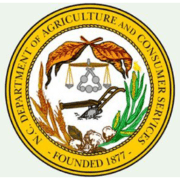Grant Funding Available To Preserve Farmland Through Agricultural Easements
Landowners interested in preserving farmland through agricultural conservation easements can apply for grants through a state trust fund. The application period is open now and ends Jan. 17, 2025.
County governments and conservation nonprofit groups can apply for farmland preservation grants from the N.C. Agricultural Development and Farmland Preservation Trust Fund; property owners work with county governments or land trusts to apply for the funding, according to information from the office of N.C. Agriculture Commissioner Steve Troxler.
“A growing population and increased development continue to put pressure on family farms,” Troxler stated. “Agricultural conservation easements are the best tool to preserve farmland. I encourage farmers and landowners across the state to work with local partners and apply for grant funding to become North Carolina Forever Farms.”
Grants are available for agricultural conservation easements on working farms and forests; to support public-private enterprise programs that promote profitable and sustainable agricultural, horticultural and forestland activities; to develop agricultural plans; and to create Agricultural Growth Zones that enhance local investments in farmland preservation.
If awarded a grant in which the application requests funds for the conservation easement purchase value, landowners will be compensated for the purchase of the development rights.
During the most recent grant cycle, the N.C. ADFP Trust Fund awarded $18.2 million to protect working farms and forests, support county farmland preservation efforts and promote agricultural enterprises.
Agricultural conservation easements not funded in the previous grant cycle are encouraged to reapply for funding. Reapplications must notify the Farmland Preservation Division via online form.
A new online grant portal will be used for Cycle 18 applications. Grant applications, rules and information packets are available online at https://www.ncagr.gov/divisions/farmland-preservation/applicants. For more information, call the Farmland Preservation office at 919.707.3074.

